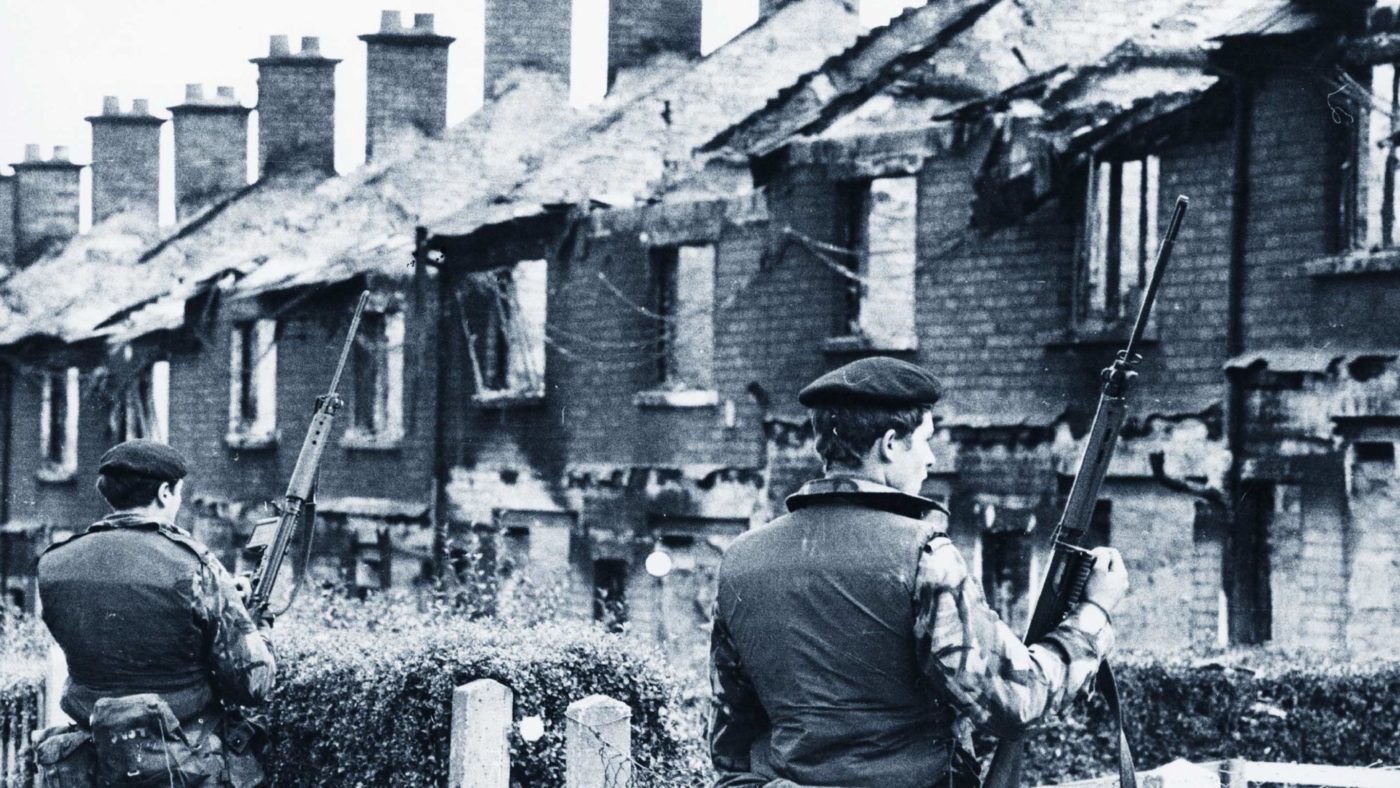The South East Fermanagh Foundation (SEFF) is an organisation dedicated to supporting the victims of terrorism in the part of Northern Ireland where I was born and brought up.
A few months ago, SEFF brought an exhibition to the mainland which remembers many of Fermanagh’s Troubles victims with a quilt. The quilt tries to do something poignant — and inimical to terrorists the world over — humanise their victims.
One such victim was a police officer, John McVitty, who had a farm close to the border village of Rosslea. In June 1986, while off duty and defenceless, he was murdered in cold blood in front of his 12-year-old son by two IRA terrorists who executed him for the crime of being the wrong sort of Irishman and then scuttled to safety back across the border a few hundred metres away. Mr McVitty’s quilt patch is, appropriately, a tractor. He was a human being with a backstory. A farmer.
We don’t know of the fate of Mr McVitty’s murderers. Almost none of the 70 Troubles related murders in Co. Fermanagh have ever been solved. We do know that Sinn Fein are at the forefront of a relentless drive to sanitise the IRAs gruesome contribution to modern Ireland by casting their erstwhile comrades in balaclavas as human rights activists.
In doing so, they create an equivalence between John McVitty’s skulking, cowardly sectarian assassins and those who served in uniform in plain sight.
Professor Arthur Aughey has described these ethical gymnastics well: “We are at a stage of moral inversion: where terrorists have become victims; where those who enforced the law are now held to be in debt to those who did not, and where dealing with the past has come to mean underwriting a narrative of subversion.”
Mr McVitty is just one forgotten blink of light in a constellation of loss stretching back over 40 years. It is the sour, indigestible lump stripping away the gears of the peace process. In Northern Ireland, the unresolved past is always in front of you.
The UK Government has just announced a four month public consultation, over the heads of the defunct Stormont Executive, on how Northern Ireland deals with its contested past.
It might surprise readers to know that a commission for victims and survivors has been in existence since 2006. For 12 years, well-meaning people have grappled with the central issue of legacy – who is a victim? Does a dead terrorist have the same equivalence with someone he blew up or shot or those in uniform killed while trying to stop him?
The logical extension of an equality of victimhood is inescapable – equality of perpetrators. This means that Loyalist and Republican paramilitary terrorists who were entirely unbound by any convention of war or morality and who accounted for 90 per cent of all the 3,600 killings are seen in the same light as the police and army who accounted for the other 10%.
Most people across these islands would reject the notion that there can ever be a blanket similarity between the forces of law and order who forestalled the anarchy and the Republicans and Loyalists desperately seeking it. There can be no credible or enduring peace based on this perverse notion of an equality of arms.
The Prime Minister avoided falling into this trap this week by refusing to countenance a statute of limitations on prosecutions for soldiers advanced by the Defence Secretary, Gavin Williamson and others.
This idea was created to stop what many people perceive to be a wholly unbalanced and unsavoury pursuit of veterans through the criminal justice system while those paramilitaries who have committed the worst atrocities remain untouched.
The truth of course, is more complex. Figures obtained by the BBC in 2017 suggest that in nearly 1,200 Legacy investigations by the police in Northern Ireland, the majority were of killings attributed to republican terrorists in keeping with their unfortunate primacy in killing people. Moreover, police and soldiers in Northern Ireland operated within legal systems that required record keeping and strict rules of engagement. This means evidence and testimony exists that can be retrieved and required with relative ease.
It is certainly the case that this disparity makes British Army and RUC veterans “low-hanging fruit” as far as the current criminal justice system is concerned. On the other hand, in relation to controversial killings by the security forces, families who believe that their loved ones were wrongfully killed have been denied access to the truth by that same system.
These people will have something in common with the far greater numbers of victims of paramilitary terrorism, many of whom have been broken by years of silence from the perpetrators with no fashionable human-rights advocacy highlighting their pain and sense of injustice. No letters of comfort for them.
This is why, while we can’t have equality of arms, we must have equality of justice, as hard as it is to bear. An amnesty extended to the British Army and the RUC would also have to be extended to terrorists – to do otherwise would probably breach the Equality and Human Rights Acts and more importantly shunt a long term settlement even further down this harrowing road.
We must always and everywhere resist the revisionism of Sinn Fein. There’s no appetite across these islands to elevate the IRA and other paramilitary groups above the moral sewer they operated from.
The people who murdered John McVitty in front of his young son have no equal standing with the people trying to stop them this side of judgment day. We can actually reinforce this message by ensuring that the rule of law is rigorously applied to everyone equally, including past servicemen and women who are suspected of committing crimes during the Troubles. But we must never forget that special debt owed to the vast majority in uniform who bravely held the line.


